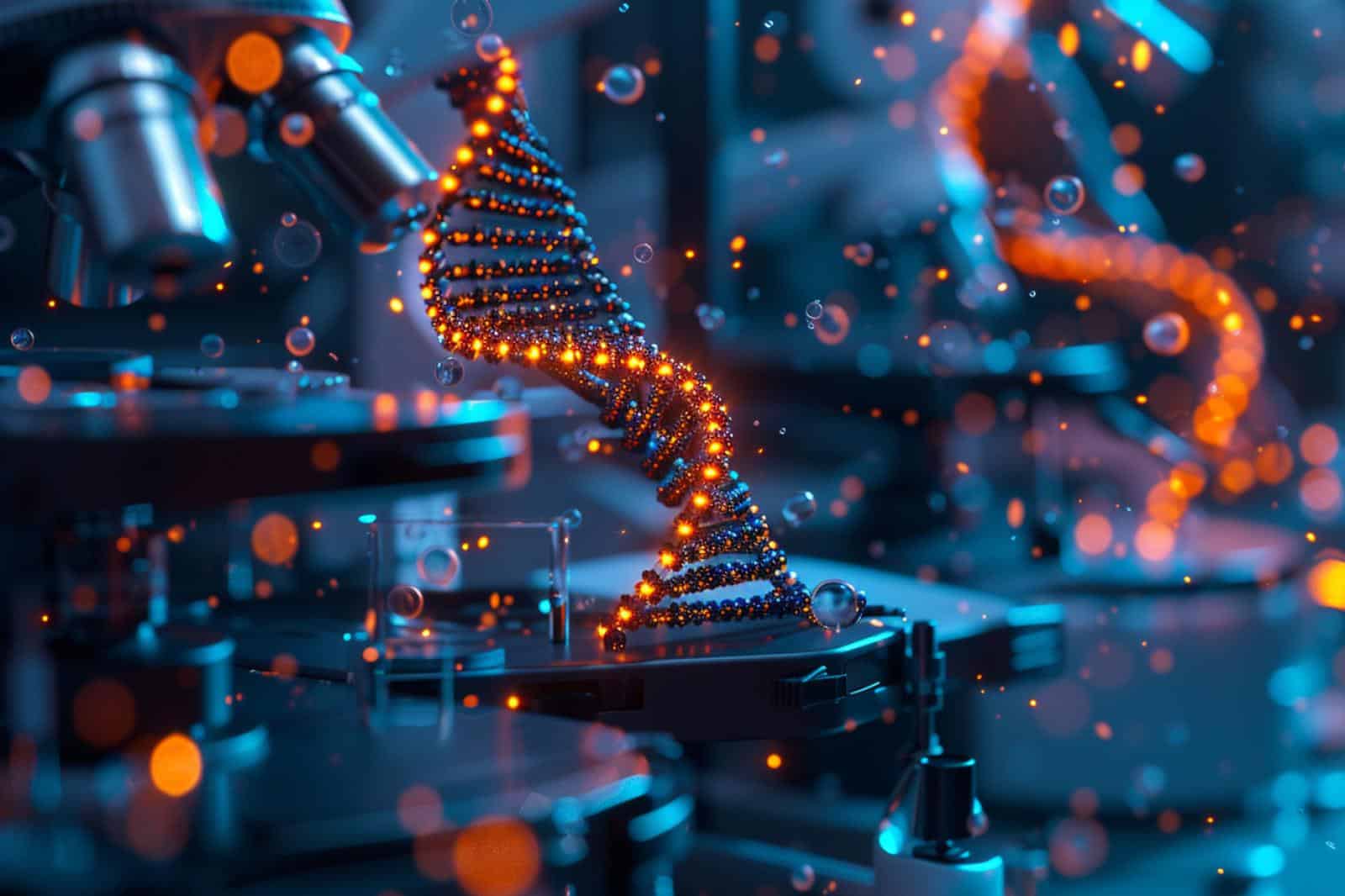What Is the Potential of Synthetic Biology in Future Healthcare Solutions?

The fascinating world of synthetic biology is a field that is rapidly gaining traction in the healthcare industry. This modern scientific discipline, a hybrid of biology and engineering, offers an enormous potential to revolutionize future healthcare solutions. Encompassing the design and construction of new biological parts, devices, and systems, synthetic biology offers a myriad of possibilities. Let’s delve into the depths of this innovative field and explore its potential implications for the future of healthcare.
The Role of Synthetic Biology in Future Diagnostics
Synthetic biology is poised to transform the way we diagnose diseases. Currently, the process of diagnosing illnesses often involves a slew of tests, some of which may be invasive or uncomfortable. However, the advent of synthetic biology may change this landscape dramatically.
A voir aussi : Can AI-Based Diagnostics Improve Early Detection of Diseases in Telemedicine?
In the realm of diagnostics, synthetic biology could enable the development of more efficient, accurate, and less invasive testing methods. For instance, synthetic biosensors could be designed to detect disease biomarkers in the body, providing early warning of potential health issues. These biosensors could be engineered to be highly sensitive and specific, reducing the risk of false positives and ensuring accurate diagnosis.
Additionally, synthetic biology’s flexibility is a key advantage. Synthetic biosensors could be reprogrammed to detect different diseases as needed, making them an incredibly versatile diagnostic tool. This adaptability could prove crucial in situations like the global pandemic, where rapid diagnosis of a new disease is necessary.
Dans le meme genre : How Is Technology Enhancing Personalized Learning and Adaptive Education Systems?
Synthetic Biology and Personalized Medicine
One of the most exciting potentials of synthetic biology lies in personalized medicine. Personalized or precision medicine is a healthcare strategy that aims to tailor treatments based on an individual’s unique genetic makeup.
In this context, synthetic biology can be a game-changer. By manipulating an individual’s genetic material, scientists could potentially create customized treatments based on a person’s unique genetic profile. This would allow for more targeted treatments, increasing efficacy and minimizing side effects.
Imagine a world where genetic diseases could be corrected at their source by modifying the faulty genes. In fact, scientists are already making strides in this area with techniques like CRISPR-Cas9 gene editing. This method, which allows for precise editing of DNA sequences, could potentially be used to correct genetic abnormalities, effectively curing certain genetic diseases at their source.
Synthetic Biology in Drug Development and Production
Another area where synthetic biology could have a substantial impact is drug development and production. Currently, developing a new drug is a long, costly process with a high failure rate. Synthetic biology, however, could revolutionize this process.
Through the manipulation of biological systems, synthetic biology could expedite the drug development process. By engineering microorganisms to produce drug compounds, researchers could significantly reduce the time and cost associated with drug production.
Moreover, synthetic biology could also contribute to the creation of new, more effective drugs. By manipulating biological systems at the molecular level, scientists could potentially design drugs that target specific disease pathways with greater precision, leading to more effective treatments.
Potential Challenges and Ethical Considerations
While the potential of synthetic biology in healthcare is enormous, it’s also vital to consider the challenges and ethical implications that come with it. The manipulation of biological systems, particularly at the genetic level, raises substantial ethical questions.
The potential for misuse or unintended consequences is a significant concern. For instance, the reprogramming of biological systems could potentially lead to harmful side effects or the creation of harmful organisms. Moreover, the accessibility of synthetic biology technologies could potentially enable bio-terrorism if these powerful tools fall into the wrong hands.
In terms of ethics, the idea of manipulating human genes, especially in the context of personalized medicine, stirs up a lot of debate. Questions about who should have access to these technologies, and how they should be used, are hot topics that society will need to navigate.
The Exciting Future Ahead
The potential of synthetic biology in transforming healthcare is undeniable. From revolutionizing diagnostics and personalized medicine to expediting drug development, the possibilities are as vast as they are exciting.
However, the journey ahead is not without its challenges. Ethical considerations and potential risks must be carefully managed. Still, if navigated thoughtfully, synthetic biology holds the promise of a healthier, more efficient future in healthcare. Innovations in this field could radically change our approach to treating diseases, improving quality of life, and extending human longevity. As we continue to explore and harness the full potential of synthetic biology, the future of healthcare looks brighter and more promising than ever.
Artificial Intelligence and Synthetic Biology: An Unprecedented Partnership
Artificial intelligence (AI) and synthetic biology are two groundbreaking fields that are poised to transform global health. When combined, these two disciplines offer a promising synergy that can speed up and optimize the process of healthcare innovation.
AI, with its ability to process and analyze vast amounts of data rapidly and accurately, can greatly enhance the capabilities of synthetic biology. Leveraging AI, scientists can better understand complex biological systems and predict how they might behave when manipulated. This can guide them in designing and constructing new biological parts, devices, and systems more efficiently and effectively.
The integration of AI and synthetic biology may also lead to substantial cost reductions. As AI algorithms become more adept at predicting successful synthetic biology experiments, the need for costly and time-consuming trial and error could be significantly reduced. This could make the process of developing new healthcare solutions faster, more efficient, and low-cost.
Moreover, this fusion of AI and synthetic biology could accelerate the development of personalized medicine. AI can assist scientists in understanding the vast genetic diversity among individuals, thus enabling more accurate genetic engineering. With the help of AI, the application of synthetic biology in personalized medicine could be more precise, effective, and scalable.
However, the marriage of AI and synthetic biology also raises ethical considerations. The potential misuse of these powerful technologies, particularly in the realm of genetic engineering, is a matter of concern. It’s paramount that as we continue to explore the union of these fields, we ensure proper safeguards and ethical guidelines are in place.
Impact of Synthetic Biology on the Global Biology Market
The burgeoning field of synthetic biology is predicted to have a significant impact on the global biology market. As the potential of this discipline continues to be realised, investment and interest in synthetic biology are expected to surge.
Innovations in synthetic biology are likely to attract the attention of major pharmaceutical companies, biotech firms, and healthcare providers, potentially leading to a boom in the biology market. The appeal lies in the promise of more effective treatments, faster drug development, and the potential for personalized medicine.
Northwestern University and Google Scholar have released studies indicating that the market for synthetic biology could reach an estimated value of several billion dollars over the next decade. This is largely attributed to the potential of synthetic biology in revolutionizing healthcare solutions, and the benefits it can bring to human health.
Moreover, the low-cost nature of many synthetic biology procedures, particularly those assisted by AI, makes synthetic biology an even more attractive investment. With the potential for higher returns and a lower cost of development, synthetic biology is poised to reshape the market landscape.
Yet, it’s important to note that the growth and development of the synthetic biology market should be sustainable and considerate of potential ethical implications. Appropriate regulatory measures will need to be put in place to ensure the responsible growth of this promising field.
The Future Beckons
The field of synthetic biology, brimming with potential, is set to redefine the future of healthcare. Its impact on diagnostics, personalized medicine, drug development, and the global biology market is profound, promising a more efficient, effective, and tailored healthcare approach.
Yet, the journey ahead is not without obstacles. The ethical implications of manipulating biological systems, particularly in genetic engineering, are complex and far-reaching. Ensuring the responsible and ethical use of synthetic biology technologies will be a crucial challenge.
Nonetheless, with appropriate safeguards and a thoughtful approach, the benefits of synthetic biology could far outweigh the risks. In the quest for better global health, synthetic biology is a powerful ally. As we delve deeper into this exciting field, we can anticipate a future of healthcare that is brighter and more promising than ever before.
